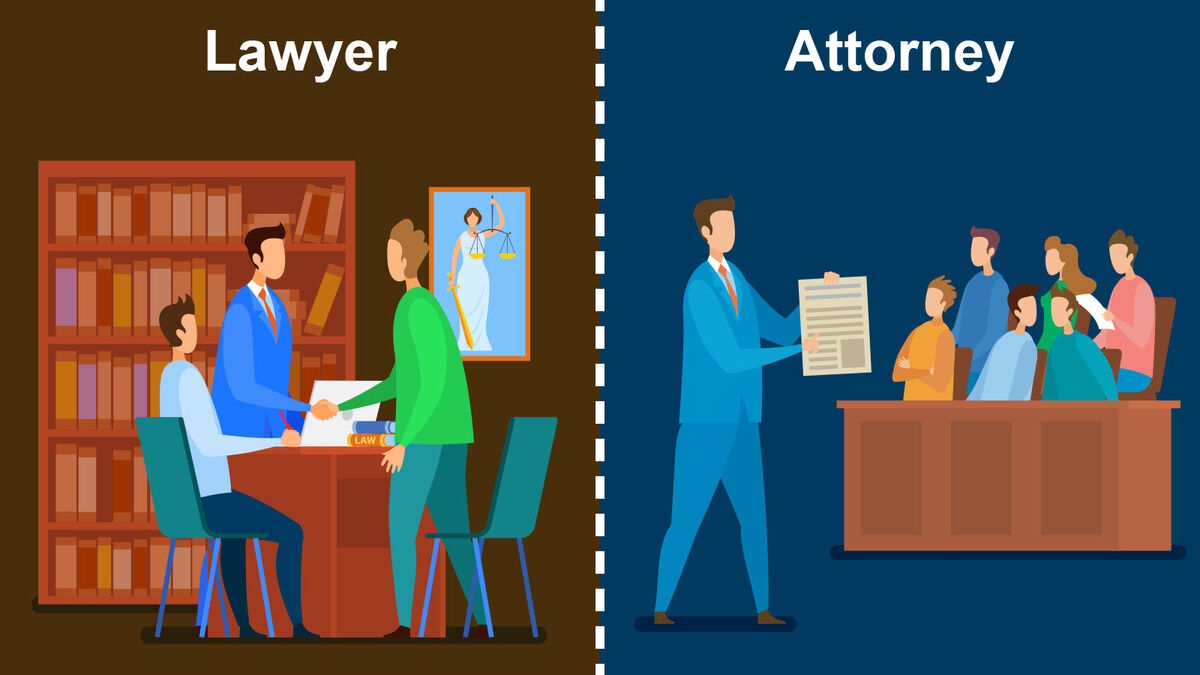When it comes to information about the legal profession, two phrases regularly come up: legal professional and legal professional. While many human beings use them interchangeably, there are key variations that can affect your criminal reveal. Whether you’re looking for advice on a personal rely or looking for illustration in the courtroom, understanding whether you need a lawyer or a legal professional is vital. This manual will clarify those distinctions and help you navigate this complicated area with self-assurance. Let’s dive into the nuances of these professions and what they imply in your criminal wishes.
Understanding the Legal Profession:Attorney vs lawyer

The legal career is a sizeable landscape packed with diverse roles and specializations. At its centre, it involves the practice of regulation to uphold justice and serve clients. From criminal defence to corporate regulation, legal professionals and attorneys play vital elements.
Understanding this area requires recognizing the nuances among distinctive titles. While many human beings won’t see a massive distinction at the start, every function incorporates precise features and duties.
Legal experts often have diverse backgrounds in regions that include business, politics, or social offerings. This range enriches their problem-fixing methods. Moreover, the criminal world adapts continuously due to societal changes and new legal guidelines. Staying knowledgeable is vital for both practitioners and people seeking their assistance, and knowing who does what can make all the difference when facing felony challenges.
Lawyer vs Attorney: What’s the Difference?
The phrases “attorney” and “legal professional” are often used interchangeably, but they do have wonderful meanings. A legal professional is a general term for everybody who has completed criminal training and can offer prison recommendations. They can work in diverse fields, such as corporate regulation or academia.
On the other hand, a legal professional mainly refers to a person who no longer only practices law but additionally represents customers in court. This means that all attorneys are lawyers; however, not all legal professionals act as legal professionals.
Understanding this distinction is essential when seeking criminal help. If you need court representation, look for a lawyer with experience in litigation. A lawyer might suffice for more general inquiries or consultations about legal subjects. Knowing what each role includes allows you to make knowledgeable choices regarding your prison needs.
Education and Training Requirements for Lawyers and Attorneys
To become a legal professional, one must comply with a rigorous educational path. Typically, this journey starts with earning a bachelor’s degree in any discipline. However, publications in political science, records, or business may be specifically beneficial.
After finishing undergraduate research, aspiring prison professionals must take the Law School Admission Test (LSAT). A robust rating on this exam is essential for gaining admission to a regulation school. Law school typically lasts three years and culminates in obtaining a Juris Doctor (JD) diploma. During these years, college students interact with various topics, including contracts, criminal law, and constitutional regulation.
Job Responsibilities of Lawyers and Attorneys
Lawyers and legal professionals play essential roles in the legal system; however, their process duties can vary. Generally, attorneys provide legal advice and assist customers. They study case regulations, draft files, and prepare for trials. Attorneys are more active in representing clients. They appear in court dockets, argue cases before judges, and negotiate settlements on behalf of their customers. Both specialists must stay updated with modifications in laws relevant to their practice areas. This ongoing schooling is vital because it affects how they serve their clients effectively.
Communication abilities are essential for each role. Clarity is fundamental to achieving favourable results, whether drafting contracts or offering arguments in court.
Client interplay also varies among the two professions. Lawyers often spend time consulting with clients, while lawyers might also be more aware of court appearances and litigation techniques. Each role has its precise needs that contribute substantially to the felony panorama.
Key Differences in Salary and Earning Potential
Salary and earning capability regularly range considerably among attorneys and legal professionals. An attorney generally has surpassed the bar exam and can constitute clients in the courtroom, which usually leads to better salaries.
Lawyers, then, may work in capacities that don’t require court representation. Their profits can vary totally depending on their particular roles inside companies or agencies.
In trendy, legal professionals earn more because they deal with cases at once. They engage with clients one-on-one and navigate prison court cases firsthand. This involvement often provides them with a monetary benefit compared to attorneys focusing entirely on legal studies or advisory roles.
The location additionally affects revenue ranges for each profession. Urban areas tend to offer higher repayment due to higher demand for felony offerings. Specializing in excessive-call for fields together with company regulation or intellectual assets can similarly beautify a lawyer’s earning capacity as well.
Choosing Between a Lawyer or an Attorney: Factors to Consider
When identifying between an attorney and a lawyer, recall your specific criminal needs. Not all conditions require an identical level of know-how.
A legal professional may suffice for habitual topics like drafting contracts or easy agreements. If you are going through capacity litigation, a legal professional—a licensed professional who can represent you in court—can be essential.Think about experience and specialization, too. Some attorneys focus on personal injury law, while others may additionally excel in corporate law. Finding someone with relevant information could make a significant difference.
Location also plays a role. Laws vary by country, so it is beneficial to choose a person acquainted with nearby guidelines.
Assess your budget. Legal charges can range broadly based on recognition and enjoyment stages. Understanding costs in advance will help prevent surprises throughout the process.
Faqs
Q. What is the main difference between a lawyer and a lawyer?
A. The primary distinction lies in their roles. While each has completed regulation school, a legal professional actively represents customers in the courtroom or makes criminal recommendations.
